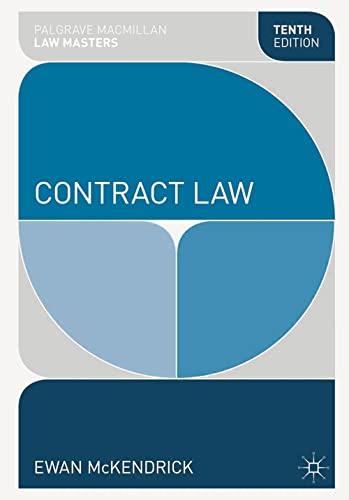Question
1.False Advertising Bronson Partners, LLC; Martin Howard; H & H Marketing; and Sandra Howard (collectively, Bronson) advertised and sold two purportedly miraculous weight loss products.
1.False Advertising
Bronson Partners, LLC; Martin Howard; H & H Marketing; and Sandra Howard (collectively, Bronson) advertised and sold two purportedly miraculous weight loss products. Bronson advertised that its Chinese Diet Tea "SHEDS POUND AFTER POUND OF FATFAST!" Bronson's advertisements claimed the tea "eliminates an amazing 91 percent of absorbed sugars," "prevents 83 percent of fat absorption," and "doubles your metabolic rate to burn calories fast." Bronson claimed that its Bio-Slim Patch would achieve "LASTING weight loss." The advertisements promised that by "carrying on with your normal lifestyle" and wearing the patch, "repulsive, excess, ugly fatty tissue will disappear at a spectacular rate." The claims were bogus. The FTC sued Bronson for engaging in deceptive advertising in violation of Section 5 of the FTC Act.
Q1: Did Bronson engage in false advertising in violation of the FTC Act? Explain.
2.Deceptive Practices
Innovative Marketing, Inc. (IMI) and several of its high-level executives and founders, including Kristy Ross, a vice president of IMI, operated a massive internet-based scheme that tricked consumers into purchasing computer security software, referred to as "scareware." The internet advertisements would advise consumers that a scan of their computers had been performed and had detected a variety of dangerous files, like viruses, spyware, and illegal pornography, when no scans were ever conducted. Computers users would then pay IMI to install its scareware on their computers. The advertisements could also cause consumers to automatically download unwanted IMI products. The scheme raked in millions of dollars from unsuspecting consumers. FTC sued IMI, Ross, and other executives and founders for violating Section 5 of the FTC Act. Ross hired counsel and defended against the lawsuit.
Q2: Did IMI and Ross engage in false advertising and deceptive practices in violation of Section 5 of the FTC Act? Explain.
Step by Step Solution
There are 3 Steps involved in it
Step: 1

Get Instant Access to Expert-Tailored Solutions
See step-by-step solutions with expert insights and AI powered tools for academic success
Step: 2

Step: 3

Ace Your Homework with AI
Get the answers you need in no time with our AI-driven, step-by-step assistance
Get Started


